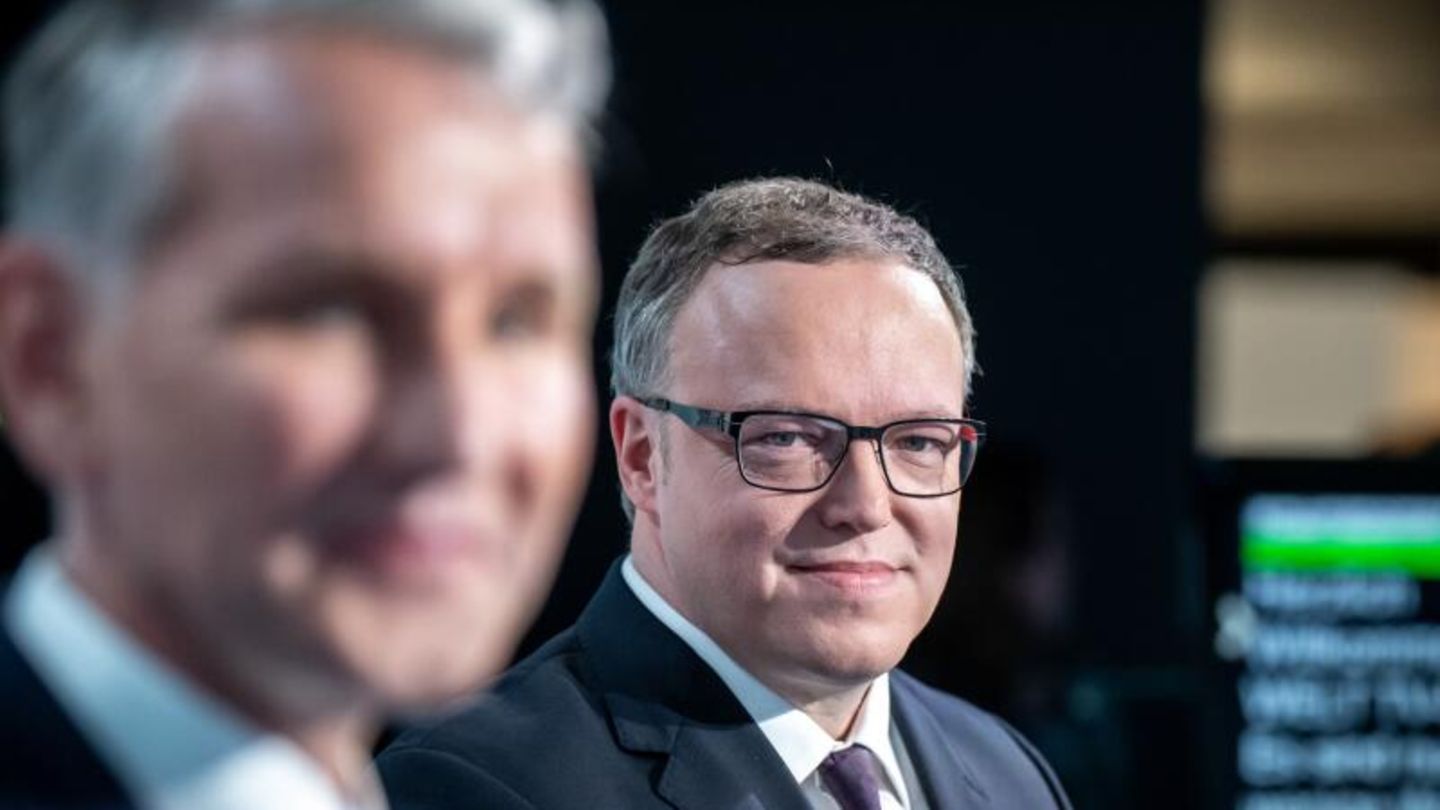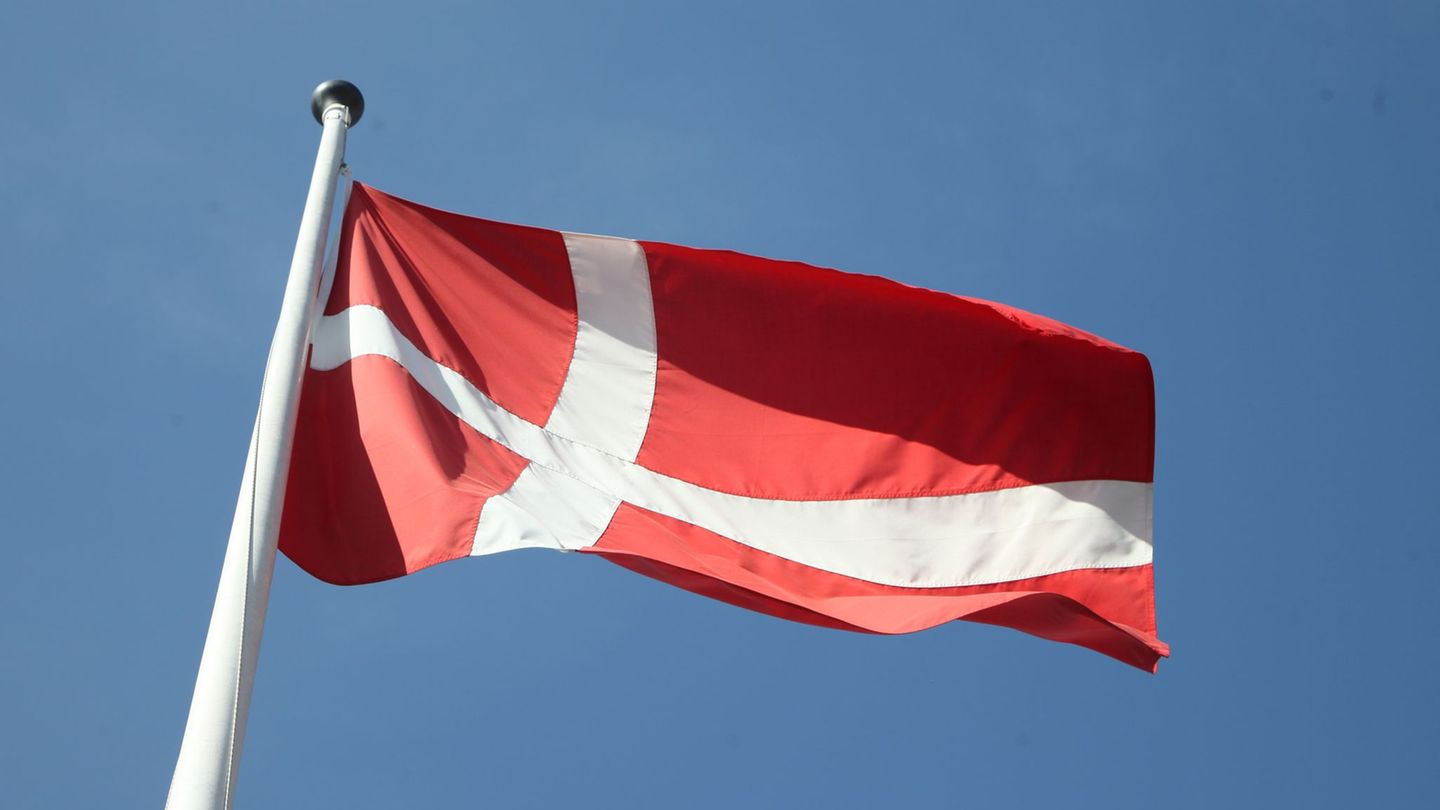Is the AfD really as strong as it seems? What we can learn from the local elections in Thuringia for the rest of the super election year in the East.
One thing quickly became clear on Sunday evening: the “blue wave” that the AfD had predicted for itself was not quite as big as it seems. The right-wing extremists did gain ground, but the CDU can now celebrate victory in many places. The local elections in Thuringia were a mood test for the three state elections in eastern Germany in September. What conclusions can be drawn from the results for the fall? An overview.
The secret winner is CDU man Mario Voigt
There was no winner of the local elections on Sunday: Mario Voigt, the head of the Thuringian CDU and leading candidate for the state elections. Voigt was pleased about several mayoral elections (Suhl, Altenburg, Weimar) that his party won straight away or in which it gained good starting positions for the runoff election (Erfurt). He said the same for some districts. At least as important for Voigt personally: the bottom line is that the CDU emerged as the strongest force in the first round of the local elections and is probably the only established party besides the AfD that can even slightly increase its total number of votes.
This is of no small importance for the state elections. Voigt, who only took over the quarrelsome Thuringian state association two years ago, is doing everything he can to be seen as the main competitor of AfD leader Björn Höcke. To compensate for his lack of notoriety, Voigt risked a direct TV duel with Höcke. This attracted attention – and with Sunday’s result, Voigt can now claim that it was of use. So far, this has only been indicated in polls, but now it has been shown for the first time in a concrete election result.
If the state election in September turns into a “everyone against Höcke” debate, Voigt would now have a good chance that Thuringians who otherwise vote for other parties would also rally behind Voigt and the CDU. This effect had already helped the Prime Minister of Saxony-Anhalt, Reiner Haseloff, to a clear election victory in 2021. However, he also ran with the incumbency bonus. Voigt does not have that.
A Ramelow effect is not visible
Speaking of the bonus of incumbency. Bodo Ramelow, the first and only Prime Minister of the Left Party, governs Thuringia. This may need to be briefly reminded after this election Sunday. Because the fame of the father of the state has done little good for his party. The Left Party has lost a lot across the country, and the crisis continues. The election results in the cities and municipalities are a sobering picture of the mood for Ramelow, who would like to govern for another five years.
In the most recent poll for the state election, the Left Party received 16 percent. That alone would be a clear defeat compared to the 28.2 percent in 2019. After the local elections, the party now has to fear that things will get much worse. In many cities and districts, the Left Party was well below 16 percent. In the election of the district councils and city councils of the independent cities, for example, it only received 8.4 percent.
Wagenknecht’s start is successful
The crisis of the Left is also connected to her: Sahra Wagenknecht, 54, former politician of the Left, now founder and party leader of the “Alliance Sahra Wagenknecht” named after her, or BSW for short. The polls of the past few months have already shown that Wagenknecht has a chance of shaking up the party system, especially in East Germany. In Thuringia she has now achieved her first respectable success, albeit a small one.
In Bleichrode, in the district of Nordhausen, with a population of just over 10,000, the BSW candidate won the first round of voting. Robert Henning received 56.6 percent and is now the first mayor in Wagenknecht’s ranks. According to its own information, the new party ran in four districts and with five city council and mayoral candidates. In some cases, it achieved double-digit results. It is now clear that the BSW will probably be able to play an important role in the autumn.
The AfD has a personnel problem
Thuringia was seen as a test case, the local elections as the first sample in the super election year to see whether the AfD is really as strong as it seems. So? The right-wing extremists did gain a lot of ground. But they were weaker in direct elections.
The AfD recorded a strong increase in the district and city council elections (+8.7 percent) compared to 2019, and is now the strongest force in nine of a total of 22 district and city councils – in the Saale-Orla district, the AfD is currently on a par with the CDU.
Meanwhile, the AfD candidates were unable to win any of the personnel elections (district administrator, mayor, mayor) in the first round. In total, ten of the 13 AfD candidates who ran made it to the runoff. In the Altenburger Land district, the AfD candidate was ahead with 33 percent of the votes cast. However, the heads of the competition, mainly from the CDU, mostly went into the second round with a stronger result.
The bottom line is that the AfD, which was founded eleven years ago, has gained ground. But it has a personnel problem.
Breaking taboos in southern Thuringia – a neo-Nazi as district administrator?
Since June 2023, the AfD has had its first district administrator in Germany, Robert Sesselmann, in Sonneberg in southern Thuringia – his election caused a stir even beyond Germany. Now the next taboo is broken: the well-known neo-Nazi Tommy Frenck made it to the runoff election for the district administrator post in the Hildburghausen district (24.9 percent), narrowly leaving the CDU candidate Dirk Lindner (24.7) behind – although Sven Gregor for the Free Voters (42.4) garnered far more votes. What is striking is that the AfD did not put forward its own candidate against Frenck.
Frenck’s candidacy had already caused irritation before the local elections. The Office for the Protection of the Constitution classifies his voting group “Alliance for the Future of Hildburghausen” (BHZ) as the “leading neo-Nazi group” in the district. He runs a right-wing extremist mail order business and organized neo-Nazi concerts with thousands of participants. Frenck was nevertheless approved by the election committee – and is now taking action against the district administration.
Source: Stern
I have been working in the news industry for over 6 years, first as a reporter and now as an editor. I have covered politics extensively, and my work has appeared in major newspapers and online news outlets around the world. In addition to my writing, I also contribute regularly to 24 Hours World.




